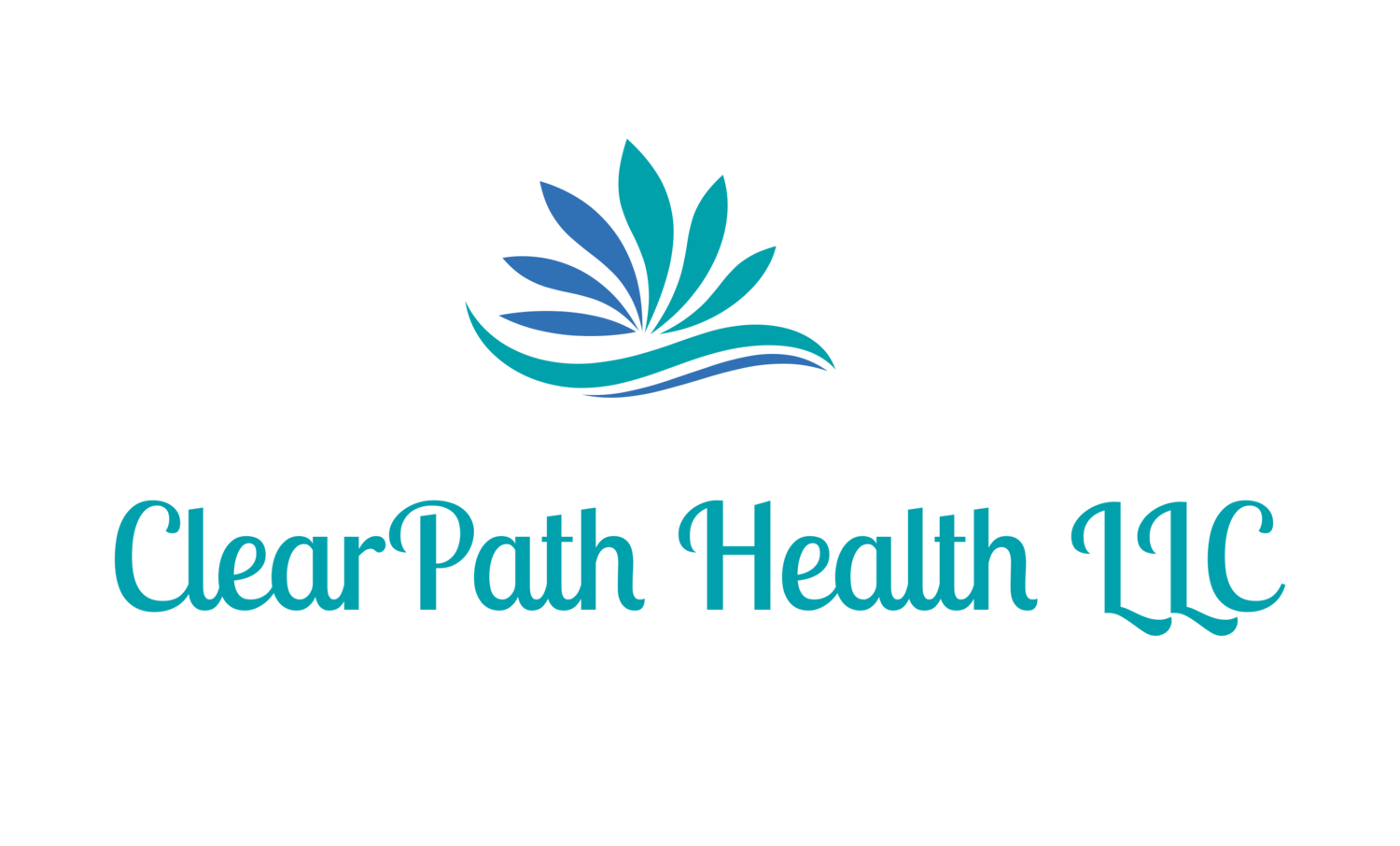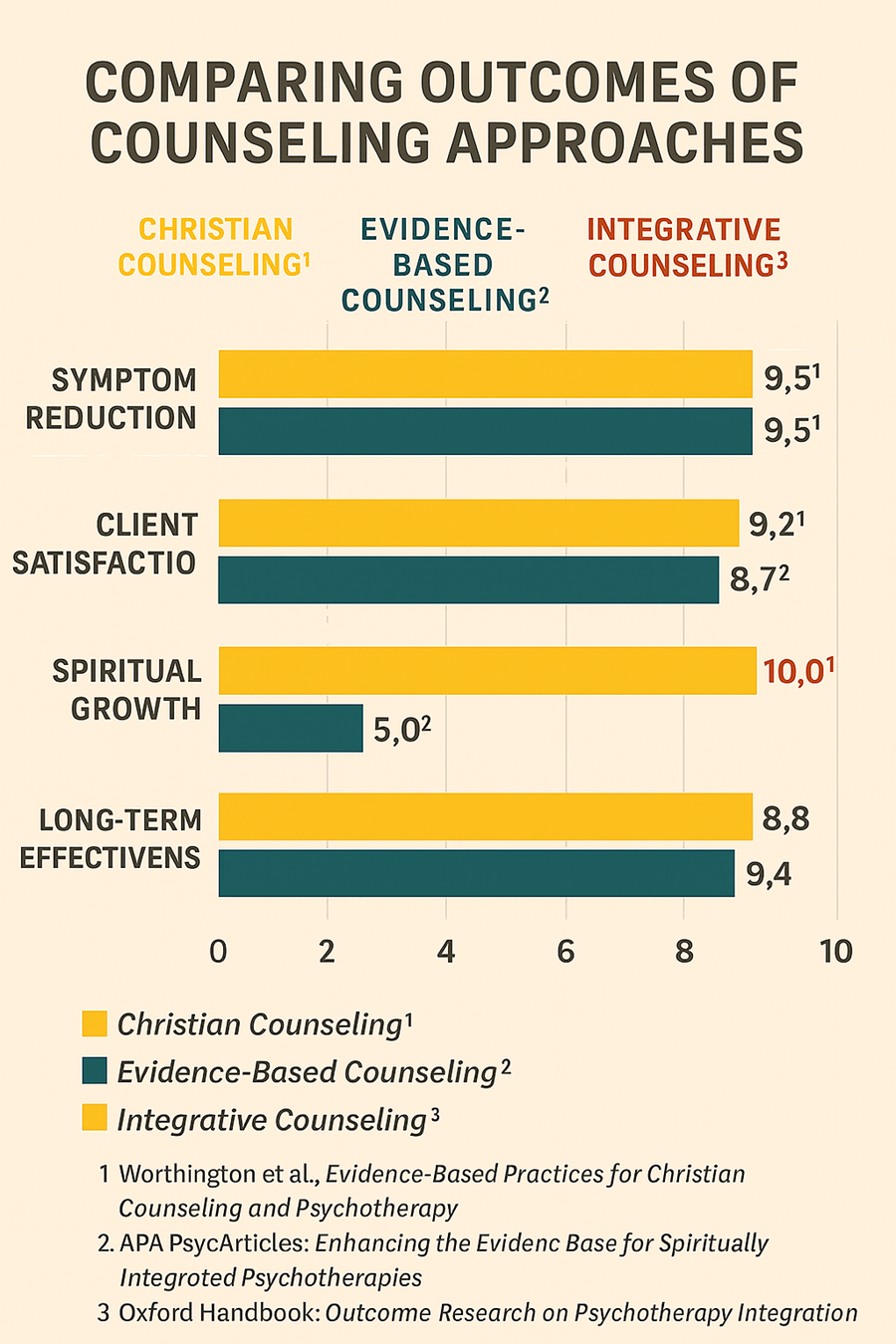References
Worthington et al., Evidence-Based Practices for Christian Counseling and Psychotherapy
https://searchworks.stanford.edu/view/12965770APA PsycArticles: Enhancing the Evidence Base for Spiritually Integrated Psychotherapies
https://psycnet.apa.org/fulltext/2022-86144-001.htmlOxford Handbook: Outcome Research on Psychotherapy Integration
https://academic.oup.com/book/1256/chapter/140192330
-
Christian counseling is a therapeutic approach that integrates psychological principles with biblical teachings. It emphasizes spiritual growth alongside emotional and mental well-being, often using prayer, Scripture, and faith-based guidance as part of the counseling process
-
Clients who value their faith often feel more comfortable with a counselor who shares their worldview. Christian counseling allows them to address emotional struggles while staying aligned with their spiritual beliefs, making the process feel holistic and authentic
-
Yes. Research shows that spiritually integrated therapies can be as effective as evidence-based methods for treating conditions like anxiety and depression—especially when the client’s faith is central to their identity. Combining biblical principles with proven psychological techniques often enhances outcomes.
-
While both aim to improve mental health, Christian counseling incorporates biblical principles, prayer, and spiritual practices. Regular counseling typically focuses on clinical techniques without religious integration unless requested by the client.
-
Primarily, it is designed for individuals who identify with the Christian faith. However, some counselors offer faith-sensitive approaches for clients from other backgrounds, focusing on shared values and ethical principles.
-
Absolutely. Many counselors use an integrative approach, blending techniques like Cognitive Behavioral Therapy (CBT) with biblical principles. This combination often results in strong symptom reduction, high client satisfaction, and spiritual growth
-
Clients often report improved emotional well-being, stronger coping skills, and deeper spiritual growth. For those seeking faith alignment, Christian counseling provides a sense of purpose and peace alongside psychological healing.
Christian Counseling
Faith Informed and Integrated
At ClearPath Health, we understand that faith is an important part of who we are individually and informs our therapeutic perspective. We are able to integrate principles of the Christian faith into therapy as much as clients desire or not at all. What we find in modern research reinforces our values and theological perspectives of who God is and how we are made to function in relationship with ourselves and with others. Because of this, we are able to integrate both scientific and faith perspectives to identify core issues, resolve conflicts and traumas, and restore relational connection and intimacy
Is Christian Counseling The Right Choice?
When choosing between Christian counseling and evidence-based counseling, clients often base their decision on personal beliefs, the nature of their struggles, and the kind of support they’re seeking. Those with a strong Christian faith may gravitate toward Christian counseling because it integrates biblical principles, prayer, and spiritual guidance into the therapeutic process, helping them align their emotional healing with their spiritual journey. On the other hand, clients who prefer a more clinical, research-backed approach—or who may not identify with a particular faith—often choose evidence-based counseling, which relies on scientifically validated methods like cognitive behavioral therapy or mindfulness techniques to address mental health concerns. Some clients seek a blend of both, looking for counselors who can offer psychological expertise while respecting and incorporating their spiritual values. Ultimately, the choice depends on what feels most authentic and effective for the individual’s personal growth and healing.

